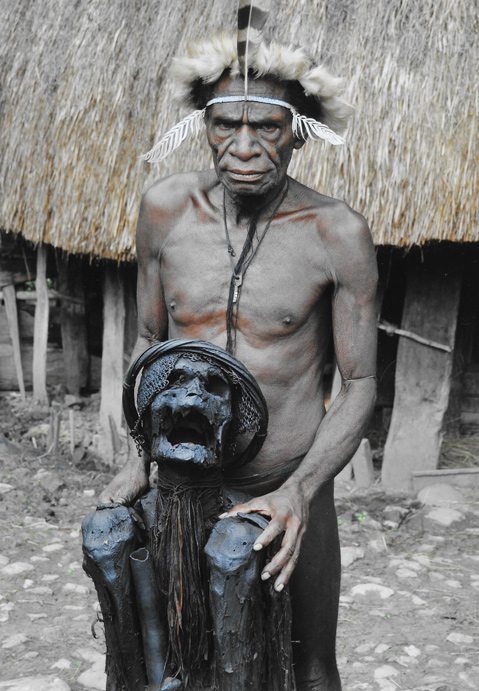Papuan Fat Cats
The Fight in Indonesia's Dark Dirty Secret

In the jungle of West Papua the Indonesian military was on the move. Freedom fighters were hiding out in a certain village, and make no mistake, the military knew of their presence. Papuan lookouts caught sight of the military 10 miles before the village. Quickly, through ancient communication skills, the village was warned. All women and children ran to higher ground and safety. The freedom fighters laid the foundation for evident battle. These small skirmishes happen throughout the highlands of West Papua, at times on a daily basis. As the military approached, the first arrow was shot and laid to rest in a soldier’s leg. Papuan war cries echoed through the jungle canopy.
In a land the size of California with a population of two million Papuans, the region remains one of the most isolated in the world. Many human rights activists call Papua “Indonesia’s dark dirty secret.”
Indonesia’s latest president, Joko “Jokowi” Widodo, is desperate to keep hidden its brutal 50-year war in its eastern-most province. Indonesia seized West Papua, the western half of the island of New Guinea ,in 1963, shortly after the Dutch colonists pulled out. Since then all foreign journalists have been banned from the territory. A police state has shackled the vast region ever since. It battles a low-level tribal insurgency and suppresses independence aspirations with such vigor that raising the Papuan national flag, Morning Star, can land you 15 years in prison. It’s estimated, according to Yale University research, that over 200,000 Papuans have lost their lives, 10 percent of the population.
Most Papuans consider themselves Melanesian, with more in common with darker-skinned Pacific populations, such as the people of Vanuatu or Solomon Islands. Indonesians often treat Papuans as racially inferior. Culturally, linguistically, and ethnically, Papuans have little in common with Indonesians. For the overwhelming majority, nothing short of independence will suffice.
However there is another truth to the Papuan struggle, those who have turned their backs on their own people — otherwise known as “fat cats.” These so-called Papuans have learned to work both sides of the confrontation and have profited largely. Their ambition seems to be strictly monetary. Well-connected to the government they strategize in hopes of keeping the conflict never ending.
Theys Eluay, at one time the Papuan tribal chief, mastered the game. In 1965 at the early age of 27 Eluay became chief of the Sentani tribe. Sentani is located in Jayapura, the capital of Papua. At 32 he voted to join Indonesia under the fraudulent UN “Act of Free Choice.” Unlike most chiefs, he believed it was the best choice. He cooperated with the military and provided intelligence about the resistance movement. Years later, he was imprisoned on charges of treason, accused of plotting Papua’s violent succession. While in jail he confessed to friends that he had given authorities information that led to the deaths of Papuan independence fighters.
In 1977 Eluay was given a seat in the provincial parliament as a member of President Suharto’s ruling Golkar party. Eluay’s transformation to Papuan hero began in the early 1990s. Denied reappointment to parliament by his party after 15 years in office, he became preoccupied with restoring his name. He saw that his future lay in fighting for independence.
In 2002, Eluay was killed by Kopassus, Indonesia’s elite military. Many Eluay supporters believe it was assassination by the government to squash Papua’s growing separatist movement.
Eluay recognized in his later years that his passion lay in supporting his people toward a better life. He had a vision above and beyond money. “Those Papuan’s that continue to profit from the chaos have no vision and will meet their destiny at a later date.”
As I write this, the world is becoming more aware about Papua. Through social media and lobbying by hardworking Papuans living in exile in other countries, progress is moving forward in a multitude of ways. Benefits, concerts, and demonstrations across the world are bringing attention to the Papuan cause.
Even the world surf community is asking its followers to boycott Indonesia. Under websites such as akrockefeller.com word is getting out.
Papua Merdeka!
Free Papua!



